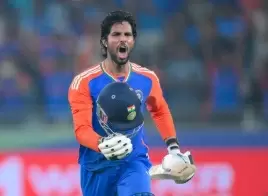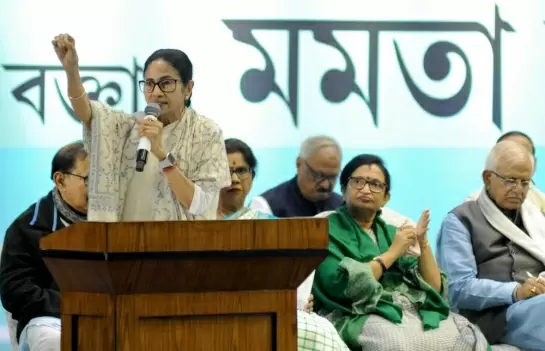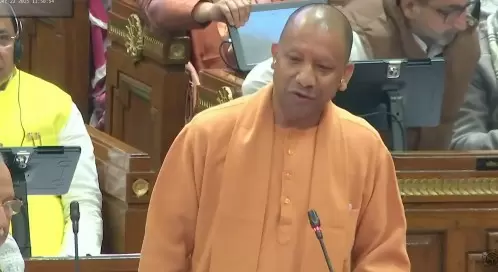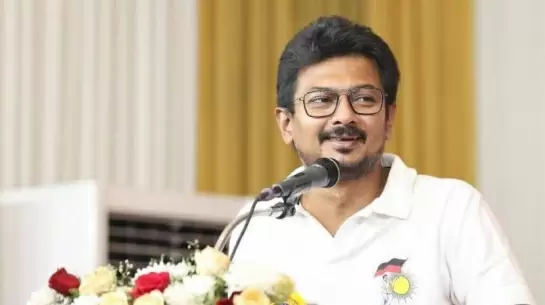The law is closing in on Mahinda Rajapaksa from all directions

24-June-2011
Vol 2 | Issue 25
The year 2011 has been an eventful ‘legal’ year for Sri Lankan President, Mahinda Rajapaksa. Even as he belligerently launched diplomatic counter-moves to neutralize the damning indictment by the UN Secretary General’s Expert Panel of Sri Lankan security forces that has been accused of war crimes and crimes against humanity, a new legal action has surfaced, raising the question: How long can Rajapakse escape culpability for the killings of thousands of unarmed, non-combatant, innocent Tamils?
In early June, a summons was sought to be served under the Hague Convention at the official residence of Rajapaksa. Issued by the US District Court of Columbia in Washington state, the summons was for Rajapaksa to appear before the US court to answer charges of having been complicit in ordering the killings or blocking investigations of cold blooded extra judicial murders committed by Sri Lankan forces in three specific incidents in Sri Lanka.
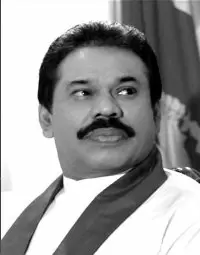 |
|
Cornered: President Mahinda Rajapaksa is in big trouble as he refused to accept summons from a US court
|
The first plaintiff (or complainant) Dr. Kasipillai Manoharan describes the killing of his 20 year old son, Raghiah Manoharan in Trincomallee in January 2006 in a public place.
Raghiah, a 20-year old student of Sri Koneswara Hindu College was chatting in a public place with about 7 of his friends, when a green coloured autorickshaw came nearby and someone lobbed a bomb killing 5 of his friends. Raghiah and another boy survived miraculously uninjured. The auto was seen entering into the military camp nearby.
Shortly thereafter a military jeep reportedly came to the spot and accosted the two boys. Witnesses have stated that the two boys started crying and wailing asking to be let free. However the security personnel mercilessly assaulted them and later shot at them, killing them on the spot. The public outcry over the murders forced the President of Sri Lanka to order an inquiry which was quietly sabotaged.
In the other incident, Kalaiselvi Lavan alleged the involvement of Sri Lankan security forces in the killing of her husband, Premas Anandarajah, who was a humanitarian aid worker of Action Contre La Fairn (Action Against Hunger) which distributed food to people affected by the war and well known to be unconnected with any side involved in the war. The Muttur Massacre saw the killing of 17 aid workers including Premas. Nothing came of the inquiry ordered into the incident.
The third plaintiff, Aiyathurai Jeyakumar also recounts a similar tale of the massacre of the entire family of his aunt, her daughter and family members on 14th May, 2009.
Numerous reports of UN agencies have chillingly and cogently documented how Rajapaksa presided over a rogue state, promising immunity against any legal action so long as the officials functioned to terrorise the Tamils in Sri Lanka.
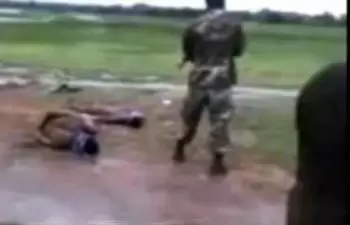 |
|
Visual evidence: Channel 4’s footage of cold blooded killings of Tamils by Sri Lankan security forces has further exposed Rajapaksa
|
In a sense the massacre of its own citizens by the Sri Lankan state had the complicit support of countries like India, Russia, China and some other powers who for their own geo-political considerations blocked any demand for criminal action against the Sri Lankan regime.
The same countries are now trying directly and indirectly to prevent any concerted action by the international community to make the Sri Lankan state accountable for the deaths of thousands of its own Tamil citizens.
In 2000, when the then UN Secretary General, Kofi Annan, was confronted with a similar situation when Somalia and Bosnia claimed immunity from prosecutions for genocidal killings or war crimes in their countries on the ground of sovereignty and internal affairs, he made an impassioned appeal: `Is there no legal instrument which the global community can rely on to fix accountability against tyrants using the shield of sovereign immunity?’
Following this appeal, Canada came forward to set up an International Commission to study the issue. In 2005 the Commission’s report was adopted by the UN General Assembly as the `Responsibility to Protect’ doctrine or R2P as it has now come to be known.
The R2P doctrine demolished the ground of sovereign immunity sought to be invoked by heads of states of countries by stressing that while international law recognises the sovereign powers and immunity of independent states, this immunity is not in isolation from the recognition of another aspect of sovereign powers - that it is counter weighed by the `responsibility to protect’ human rights of their subjects, as recognised in international law.
Thus any sovereign who seeks to invoke immunity has to, at the same time, also answer the question of how he has discharged his responsibility to protect, preserve and promote human rights under his control. If there is any flouting or breaching or contravention of this sovereign responsibility then the invocation of sovereign immunity fails.
Since the complaints filed before the US court very clearly demonstrates the failure of Rajapakse to protect and safeguard the lives of Sri Lankan Tamils, especially those unconnected with the LTTE, who were clearly non-combatants, there is a violation of the R2P doctrine, which thus makes the claim of sovereign immunity untenable.
It will be interesting to see what the US court does with the refusal of the summons by Rajapakse. According to rules, once it is established that there was refusal to accept the summons, the summons will be published in newspapers. If the defendant, Rajapakse refused to respond the court can continue to adjudicate the issue by setting the defendant `ex parte’ and decide on the claim of the three plaintiffs.
This case is a test of the international community’s commitment to the rule of the law. The UN is a system of justice for world citizens. It is not a club of the states of the world.
Similar complaints have been filed against Rajapaksa in courts in England, France, Germany, Netherlands, and Norway. How long Rajapaksa can evade the courts in these countries remains to be seen.
V Suresh is National Secretary, People’s Union for Civil Liberties (PUCL)
Also Read The Sri Lankan army is essentially Sinhalese and it has an inherent hatred for Tamils




